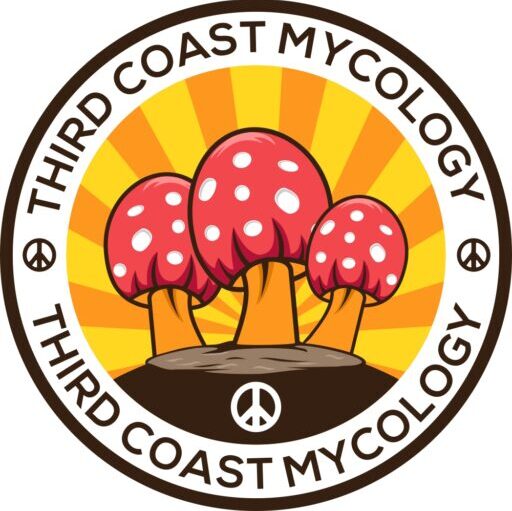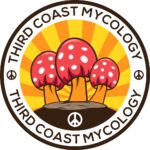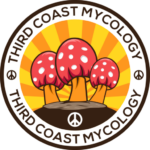Better Living Through Mycology
Benefits of Mushrooms
Here are some of the benefits of psilocybin based on scientific research…
After taking psilocybin, a number of longtime smokers who had failed many attempts to quit smoking reported an abstinence rate of 80% after 6 months, substantially higher than typical success rates in smoking-cessation trials.
A “substantial majority” of people suffering from cancer-related anxiety or depression found “considerable relief” for up to six months from a single large dose of psilocybin — the active compound in hallucinogenic “magic mushrooms.”
In a study of adults with “major” depression, researchers report that just two doses of the psychedelic substance psilocybin produced “rapid and large” reductions in depressive symptoms, with half lasting at least four weeks.
Online survey of over 300 people with Alcohol Use Disorder reported reducing or abstaining alcohol use after taking a psychedelic drug such as psilocybin. After the psychedelic experience, 83% no longer met Alcohol Use Disorder criteria.
In a follow-up to a prior study, researchers report that the substantial antidepressant effects of psilocybin-assisted therapy, given with supportive psychotherapy, may last “at least a year” for some patients.
Reports suggest that psychedelic agents may relieve symptoms of obsessive-compulsive disorder (OCD). In a controlled clinical environment, psilocybin was safely used in subjects with OCD and was associated with acute reductions in core OCD symptoms in several subjects.
In addition to making connections, psilocybin also seems to break negative linkages in the brain. “My hand would not let me touch that cigarette,” she says. “To this day, if you paid me a million dollars to touch a cigarette with my hand, I cannot.” A year-and-a-half later, she remains smoke-free. “I think something in my brain got turned off,” she says.
Overall, LSD and psilocybin were reported as highly effective for both CH and migraines. Both substances were reportedly effective for prophylactic as well as acute treatment. … Microdosing was reportedly a successful approach for most sufferers … No severe adverse effects were reported…
Psychedelics literally regrow parts of the brain. Our results underscore the therapeutic potential of psychedelics and, importantly, identify several lead scaffolds for medicinal chemistry efforts focused on developing plasticity-promoting compounds as safe, effective, and fast-acting treatments for depression and related disorders.
Modern research suggests considerable therapeutic promise for psilocybin. Two studies, in particular, provide strong evidence showing substantial decreases in depressive and anxious symptoms that appear to persist for at least 6 months after a single treatment. Such results are unprecedented in psychiatry.
[Psilocybin] enhance[s] their awareness of the subconscious processes underlying their addiction. …This facilitates recovery by enabling individuals to let down their psychological defense mechanisms, access and embrace the painful and suppressed regions of their psyche, and re-establish a lost connection to their authentic self.
A single dose of a mind-altering compound contained in psychedelic mushrooms significantly lessens mental anguish in distressed cancer patients for months at a time. One-time treatment with psilocybin quickly brought relief from distress that then lasted for more than 6 months in 80 percent of the 29 study subjects monitored.
Patients noted that after being treated with psilocybin, they felt their quality of life improve. They noted that they wanted to engage more with external activities, had more energy, experienced improved relationships with their family members, and performed better at work. As such, psilocybin may be an effective treatment for post traumatic stress syndrome.
Treatment with psilocybin produced rapid and sustained antidepressant effects, as evidenced by cerebral blood flow and blood oxygen-level dependent resting-state functional connectivity measurements before and after treatment. Decreased depressive symptoms were observed in all 19 patients at 1-week post-treatment and 47% at 5 weeks.
“Psilocybin not only produces significant and immediate effects, it also has a long duration, which suggests that it may be a uniquely useful new treatment for depression,” … “Compared to standard antidepressants, which must be taken for long stretches of time, psilocybin has the potential to enduringly relieve depression with one or two treatments,” he said.
Participants in the study displayed better convergent thinking (the ability to identify a single solution to a problem) and divergent thinking (the ability to identify many possible solutions). Researchers noted that individuals became “more fluent, flexible, and original in the possibilities they came up with” after microdosing psychedelics.
Psilocybin may have efficacy for the treatment of mood and substance use disorders. Acute psilocybin effects include reduced negative mood, increased positive mood, and reduced response to negative stimuli. Psilocybin may increase emotional and brain plasticity, and the reported findings support the hypothesis that negative affect may be a therapeutic target for psilocybin.


